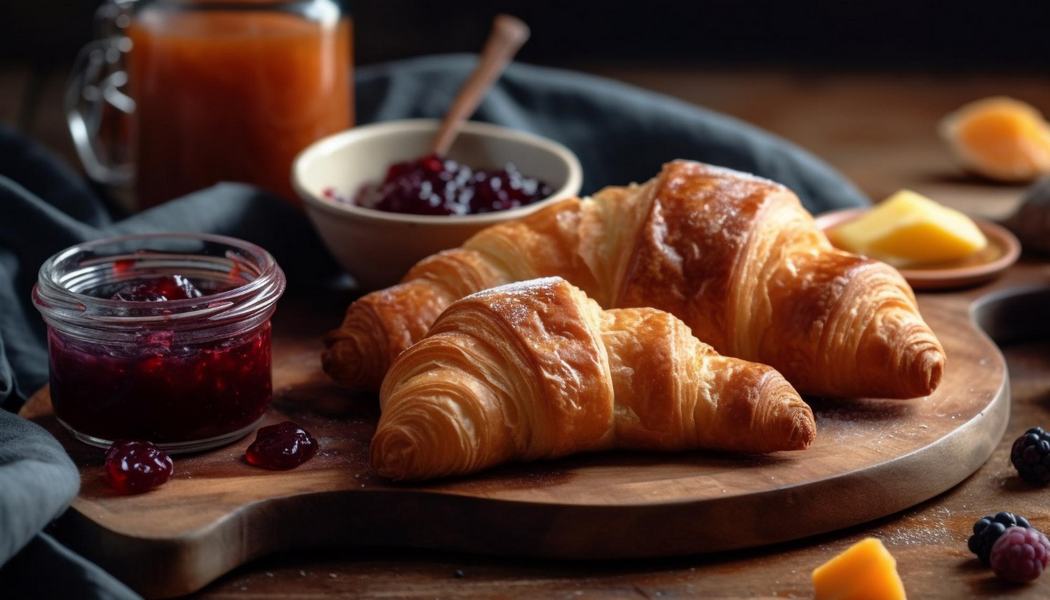Bread in France is a cultural cornerstone. Walking through any French town at dawn, you will experience the wonderful aroma of freshly baked bread wafting through the air. Breads worldwide often comprise the same essential ingredients — flour, water, yeast, and salt. But related to France, the technique, tradition, and regional flair make bread distinctive.
This article will delve deeper into the nuances of breadmaking in France. We will explore its rich history, the diverse types of bread, the craftsmanship involved, and its cultural significance.
The history of French bread
Before the baguette became synonymous with French culture, bread had already carved its place in history. In medieval times, each village in France boasted its own boulangerie and unique bread recipes.
During the French Revolution, bread gained political importance because its rising prices helped ignite the revolutionary movements. The French government enacted a 1920 law on the ‘baguette de tradition’ to protect bread quality. This law restricts the ingredients of traditional French baguettes to just four: flour, water, salt, and yeast. Also, it strictly prohibits the addition of preservatives or any other extra ingredients.
This law maintains the legacy and integrity of French bread for generations to come.
What are the main types of French bread?
The variety of French bread is staggering, extending far beyond the iconic baguette. Each type serves different needs and occasions:
- Baguette: long, thin, and versatile — great for sandwiches.
- Boule: a round loaf, perfect for rustic table settings.
- Bâtard: shorter and thicker than a baguette, ideal for bruschetta.
- Pain Complet: a hearty whole-grain loaf, excellent with stews.
- Fougasse: a flatbread from Provence, often flavoured with herbs or olives.
Regional specialities further diversify French bread. For instance, fougasse originates from Provence and typically incorporates local flavours like olives, herbs, or anchovies.
Then there is ‘Pain Poilâne’. It is a sourdough bread from Paris that has earned international acclaim for its unique taste and texture. What sets it apart even further is the wood-fired ovens where people bake it. Its subtle, smoky aroma complements its slightly nutty, tangy profile.
Techniques and craftsmanship
Making a loaf of French bread requires considerable skill. A baker undergoes years of rigorous training to master the ancient techniques. The process is a mix of science and art. Understanding the fermentation, elasticity, and oven temperatures is as crucial as the baker’s touch during kneading.
One essential technique is using a ‘poolish,’ or pre-ferment. This mix of equal amounts of water, flour, and a little bit of yeast sits and ferments for several hours or even days. The poolish enriches the bread’s flavour profile and improves its texture, making for a superior loaf.
What about the cultural significance?
In France, bread does more than fill you up. It brings people together, symbolizes religious beliefs, and shows off the unique traits of different regions. Tearing a baguette by hand rather than slicing it promotes sharing and community. It is an unwritten rule at many French dinner tables. Phrases like ‘du pain et des jeux’ (bread and games) underline its lasting societal influence!
Interestingly, bread also makes an appearance in French laws and customs. For example, it is illegal for a bakery to be closed more than one day a week because bread is deemed that important. Also, in many regions, giving bread to a new neighbour symbolizes wishes for prosperity and friendship.
Conclusion
French bread goes beyond being just a food item. It is a tapestry woven with history, cultural nuances, and community values. From the crispy crusts of Parisian baguettes to the flavorful fougasses of Provence, it comes in many forms but always delivers in taste and quality.
Which bread would you like to taste? Please let us know and be sure that France has something to suit every palate. Your choice could even lead you on a culinary adventure!
